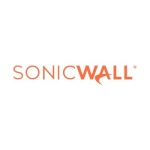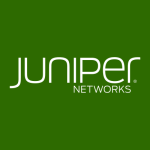The tool is partly for home-based usage and partly for business usage. I am in the IT industry, taking care of the security and technology parts. I also run a private business in my spare time when I am not working. I use Netgate pfSense as my firewall to separate those two entities: my home and business. I also participate in providing server space for projects involving Azure Flex and Azure Core, which is kind of like an AWS situation but in a more centralized manner. I use Netgate pfSense to ensure that everything is separate. I use Suricata to weed out any malicious type of activity and to keep an eye on just to ensure that all the other functions, both personal and business-related, remains unaffected, intact, and devoid of any type of attacks or the other type of malicious kind of activity.
The product has helped improve my organization's environment and personal environment since before the use of Netgate pfSense, and I really didn't even have a hardened firewall. With the implementation of Netgate pfSense, I am able to monitor my various network streams, so I have my servers, VLAN, my home VLAN, EMC, my WAN, and the specific VLAN for IoT devices. I even segregate some of my outgoing intranets as well, and I see how Netgate pfSense has allowed me to have a full and high-end visibility of a lot of the traffic that comes and goes, which for me is important because part of the job that I do is crypto related. When dealing with crypto-related business, you need to be careful as far as what you allow in and out of your network.
I wouldn't say the simplicity of the tool is its best feature. In a way, there is a simplicity to it, but I like the expandability of the packages that could be used. I like the data and the information that I can collect while observing network traffic. The whole layout of the application is pretty decent. The tool is not super expensive. It is quite an affordable tool. There used to be the free Netgate pfSense Plus that was provided earlier at one point, and I understand now, of course, that it is based on the yearly licensing model, and I think that took a lot of people aback. There is not a lot of money to be paid for the tool, and you get more than what you paid for, especially if I think about its use and consider what it does.
If I assess the flexibility of Netgate pfSense, I would say that I can not just run a firewall, but I could use HAProxy and run a bunch of other kinds of server-based applications that normally would occupy a different server, so it amalgamates a few services into one package, which is nice single point of contact. I like not having to go to two or three servers to run the services needed, especially the ease of the firewall, as far as the creation of rules and the security aspect are concerned. The updates that come in are pretty decent, and though not too often, they are often enough to keep things secure. I like the tool's flexibility in the sense that you do not have to buy an appliance. You can put it on your own hardware, and it can be very simplistic hardware with simple configurations. There are a lot of abilities to be used in the product, and benefits can be gained from the tool without having to incur a huge upfront cost in purchasing hardware. If you have a computer lying around, you can easily install it, and you can go with it. With the tool's free version, you can use the tool for free. It is quite a friendly tool in the sense that it provides access not only to regular people but also to high-end corporates and business individuals.
Getting extra features or added packages in Netgate pfSense is very easy since the GUI and the menus basically take care of everything. When you go to do the installation, you see the log messages come up, and it's very clear when it is complete. It is a pretty simplistic process.
As per my assessment regarding Netgate pfSense's role in helping prevent data loss, I would say that as far as data loss is concerned, I think part of it is the firewall preventing access to my network shares aside from the typical kind of blocking ports and not allowing traffic. I think very much the segregation of the VLANs is possible, and my server VLAN will have all kinds of data, information, databases, and file repositories, and all of that is completely segregated from my DMZ. Any kind of the shared services that I offer or kind of crypto-based services that I do, the connections, both incoming and outgoing, can't gain access to my server VLAN at all, and such segregation really protects my data aside from some of the built-in, immutable type of services that the kind of network repositories that I have that do outside of Netgate pfSense. The key thing actually is just keeping things separate and being able to get alerts if something funky is happening.
Netgate pfSense gives a single pane of glass management view since the dashboard is always the first thing that I look at, and I have got to configure it in a way where I see my traffic graphs. I have the gateways and interfaces that I look at, along with the interface statistics, services, and a lot of other functions that I can quickly just glance at, including my Suricata alerts, the filtering, and other alerts. I can look at the UPS and the run time for the battery. I could take a quick glance and kinda see all the information I need without getting too deep, making the tool's dashboard a pretty cool feature. It really saves a lot of time.
I use Netgate pfSense Plus. I generally have experienced zero downtime with the tool. If there is some downtime, it is because of my own doings. As far as the benefits of Netgate pfSense are taken into consideration, I can see it has a lot of the extras that you get, and it worked. At a certain point in time, Netgate pfSense Plus was free to upgrade. I don't remember how much Netgate pfSense Plus and pfSense CE software differ from each other, but I know they differ quite a bit. The one thing I will say is the major difference that I have used is the boot environment. If I am doing an upgrade, I will basically take a snapshot of my current boot environment. Even though it does it automatically when you do an upgrade, I just take another backup. If I do something that is a very specific change that makes me a little nervous, I take a snapshot, and then I always have something that I could boot back into if things go horribly wrong, which is a big plus and one way of eliminating downtime since you can go back to a previous instance that is fully functioning.
Speaking of whether the tool provides visibility that enables our company to make data-driven decisions, I can check my graph, and through monitoring, I will be able to check my WAN and see the quality of the WAN to the point I was utilizing a router or modem provided by my service provider I was able to through the graph when there was a drop in the traffic and the quality of the connectivity, and that led me to basically scrap the modem and actually configure my own setup to get the internet into my home.
In terms of the total cost of ownership of Netgate pfSense, I think that for somebody like me who uses it in a cozy home corporate business environment, it is quite an affordable option. The tool is not expensive, and when it comes to the cost of ownership, if you have something lying around, like an old server that I repaired for Netgate pfSense. The benefit is that I am able to put it on an older server, so there are no hardware costs. The tool is not something that would go into a landfill. I think that the tool has been quite affordable and has paid itself over quite a few times. You could go cheap and use an ASUS router at home, which a lot of people do, but it may not have the stability, and it doesn't have the kind of horsepower on your engine speed or expandability of a polished product like Netgate pfSense.
The maintenance that is needed in the tool is just to make sure that the tool is up to date. It's not necessary to do the maintenance, and it's not just about updating Netgate pfSense but also updating the packages. It is great that you have a good product that can keep your environment safe. If you don't patch or have unknown vulnerabilities that surface, then you will end up wasting your money. I do have a patch process, so I check at least once a week for new installs or packages or if there is a version released and apply them shortly after. The total time to install the tool is probably a couple of hours in a month.
I
There are a lot of features I want to see simplified in the product. I want to see the licensing model part to be improved in the product. Those who need to do certain functions from their house would purchase Netgate pfSense Plus while configuring their machine, but if they have another network added to it, then it would basically change the ID of the device, and they have to go and request to get relicensed. Netgate pfSense will help you with the relicensing part for one time, but if you need to do it a second time, then you will have to pay for a new license, and that, to me, is not very fair. I think if you have paid for a year of service, it shouldn't matter how many times you need to request to rekey the license as long as it is not every other day. Two to three requests in a year shouldn't be an issue, and if I add another network card, why should I pay for a new license when there is not much of a difference.
The only thing that I would like to get some better utilization of is the ability to do free switching. If I need to go between different VLANs, I have VLAN 19.1 and VLAN 19.2, and I strictly use Netgate pfSense, but it doesn't route very efficiently and works quite slowly. I understand that it is not the router, but a lot of times, Netgate pfSense advertises it as a tool that is able to route traffic. I had to go in and purchase a separate router to manage my internal VLANs because Netgate pfSense was just choosing between the VLANs I had.
I have been using Netgate pfSense for a year and a half. I am just a customer of the tool.
Stability-wise, I rate the solution a nine out of ten.
I haven't had an instance where the tool has gone down, and if it has, then that wasn't my fault. The stability is there in the tool. I have had the tool p and running a few times, and the only time I have had to reboot it is when there was a new release.
The scalability is really dependent on your hardware. If I want to scale it up, I can throw in network adapters, more memory, more CPU, and scale it up. It is quite a scalable tool, and it is really just dependent on what you throw at it. Scalability-wise, I rate the solution an eight out of ten.
The solution's technical support is not bad, and they are pretty quick to respond. It is quite average as far as the technical part goes. There has been no bad experience with the support team. I rate the technical support a seven out of ten.
I tried using OPNsense but I didn't like the whole approach, the menu system and the way it was configured. Netgate pfSense made more sense to me in a logical manner.
The product's initial setup phase is fairly straightforward. If you install an operating system, then you can install Netgate pfSense, so there is nothing to it.
The solution is deployed on an on-premises model.
The basic installation of the tool takes less than an hour. The configuration part is something that you figure out as you go ahead with the tool, which obviously takes a bit longer. The basic installation is quite quick and can be done in less than an hour.
For me, considering how much I put into the tool, right now, I would say that the ROI is around 25 percent.
When it comes to Netgate pfSense, I use the basic TAC Lite license, which comes for about 100 USD. I don't think Netgate pfSense is expensive at all. You could look at other services that offer similar types of configurations, and you can see it may cost in the thousands range. Even though I want something for free, I think it is quite a reasonable tool. The only qualm I have with the tool is that it is a little stingy on how many times they have to rekey a license.
I would recommend the tool to others since for me, it is simple, the low cost of ownership, expandability, just the way it looks, I like the numbers, and when the data is there, you throttle how much information you want to see or collect. For somebody who likes to tinker or likes to see the numbers or wants to harden their network or has a corporate business and wants to ensure things are operating smoothly, the tool is worth it.
I rate the tool an eight out of ten.
















